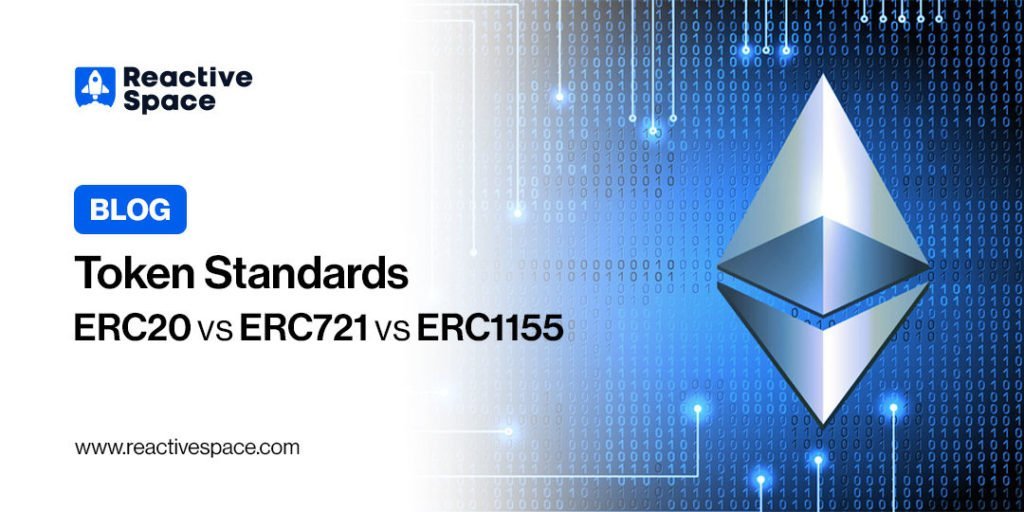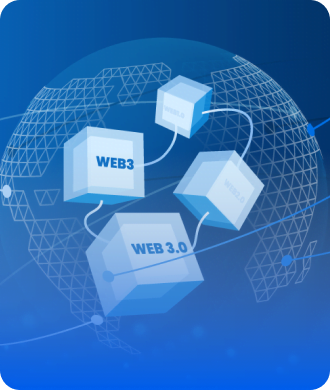
What are Token standards? Why they were created? What are their features?
You must be looking for it!
This blog will prove a stop-shop for all of your queries….
Let’s dive in!
ERC-Ethereum Requests for Tokens are designed specifically for Ethereum Blockchains. ERC tokens contain guidelines and specific information about the creation and implementation of smart contracts on the Ethereum blockchain.
These standards ensure seamless interactions of different smart contracts and tokens. ERC tokens provide a framework for creating decentralized applications, that ensures interoperability and compatibility.
Some common token standards are ERC-20, ERC-721, and ERC-1155. All Crypto users need to know more about these tokens and their use cases.
Don’t need to do any more research!
After reading this blog, you get all the required information about ERC tokens;
ERC-20
ERC-20 was proposed in 2015 by Fabian Vogelsteller. It contains a common set of rules and functions to easily deploy smart contracts on Ethereum blockchains.
The ERC-20 token is widely adopted for tokenization on the Ethereum blockchain, providing a robust framework for the creation and operation of NFTs.
ERC-20 tokens can be easily transferred between Ethereum addresses, allowing users to send and receive tokens with ease. Additionally, the standard includes built-in functions for managing token balances, approving third-party transfers, and checking the total supply of tokens.
- The transferability feature of ERC-20 makes it the most acceptable among all tokens.
- The divisibility feature enhances the granularity of transactions
- A standardized interface ensures consistency and compatibility with a well-defined set of functions.
- ERC-20 facilitates wallet management, token balance management, and tracking of token holders.
ERC-721
This token is a simple piece of code in a basic template, created with “Solidity”. This basic template would easily deploy smart contracts on Blockchain with adding informa
ERC-721 is the cryptographic standard used for multiple Non-Fungible Tokens. These unique tokens would make ownership and transferability more secure and reliable. Each unique ERC-721 ensures that rights can be easily transferred from one address to another.
ERC -721 creates scarcity in the digital realm. Beyond traditional use cases, developers explore its governance potential.
- In terms of uniqueness, ERC-721 lies at the forefront. Each token is specified with a unique identifier and can’t be replicated. Digital artwork and collectibles would be uniquely identified with governance authority.
- Another important trait is its non-divisibility feature. Each token with be identified specifically and can’t be subdivided. So, a digital asset would have specific representation without the issue of further divisibility.
- The most widely accepted Token standard must be accessible over multiple platforms. Interoperability allows ERC-721 to seamlessly exchange digital assets on Different Blockchains.
- Beyond the unique identifier, ERC-721 contains customizable metadata. This metadata contains specific attributes of digital assets i.e., name, image, description, or any other relevant information. This specific information provides an extra layer of protection to digital assets.
ERC-1155
EIP 1155 was created in 2018 to solve the transferability of multiple digital assets. ERC-1155 provide seamless transferability of both fungible and non-fungible tokens. Gamer developers and players would be benefited the most from its creation.
This unique hybrid token would allow users to transfer multiple tokens within a single transaction with one smart contract.
Being a versatile token standard ERC-1155 revolutionize the world of tokenization. This token standard opens new possibilities for different industries.
ERC-1155 makes it adaptive due to the following features:
- Transfer costs would be reduced with the creation of ERC-1155. Multiple token transferability within one transaction would eliminate extra charges.
- Multiplayer game users can easily transfer assets within the game with the help of ERC-1155. This unique standard will allow the exchange of items with multiple variations.
- Efficiency and scalability would be enhanced due to the transfer of variable assets with a single contract.
- ERC-1155 follows the standardized Ethereum format to provide a secure tokenization process. Multiple verification steps add an additional layer of protection.
Overall, ERC-1155 is a compelling token standard with interesting features that make it a suitable choice for gaming, marketplaces, and other scenarios where the creation of multiple tokens is required through a single contract.



